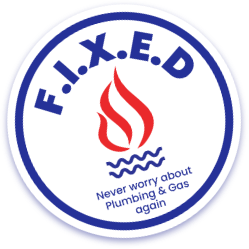Gas safety is paramount for every Brisbane homeowner. While our sub-tropical climate spares us from the icy grip of frozen pipes, there are still essential precautions to take regarding gas usage in our homes. From detecting leaks to ensuring proper maintenance of appliances, here are some crucial gas safety tips to keep your family and property secure.
Gas leaks are a serious hazard and can occur silently without any noticeable signs. To detect leaks early, conduct regular inspections of your gas appliances, fittings, and connections. Look for hissing sounds, unusual odours (like rotten eggs), or dead vegetation near gas lines. If you suspect a leak, immediately turn off the gas supply, ventilate the area, and contact a licensed gas fitter for assistance.
Regular maintenance of gas appliances not only ensures their efficiency but also prevents potential safety risks. Schedule annual inspections by a qualified gas fitter to check for leaks, corrosion, and proper ventilation. Clean or replace filters in gas heaters and ensure vents are clear of obstructions to prevent carbon monoxide buildup.
Carbon monoxide (CO) is a silent killer, produced by faulty gas appliances or inadequate ventilation. Install carbon monoxide detectors on every level of your home, particularly near bedrooms. Test them regularly and replace batteries as needed. If a detector sounds or you experience symptoms of CO poisoning (headaches, dizziness, nausea), evacuate the premises immediately and seek medical attention.
Follow manufacturer instructions for all gas appliances, including heaters, ovens, and hot water systems. Never use outdoor appliances indoors, as they can produce harmful gases like carbon monoxide. Ensure proper ventilation when using gas appliances, especially in enclosed spaces, to prevent the buildup of toxic fumes.
Ensure everyone in your household, including children, understands the importance of gas safety. Teach them how to recognize the smell of gas and what to do in case of a leak or emergency. Create a family emergency plan that includes evacuation procedures and contact information for gas emergency services.
If you use LPG cylinders for cooking or heating, store them in a well-ventilated outdoor area away from ignition sources. Check cylinders regularly for signs of damage or rust and replace them if necessary. When transporting cylinders, secure them in an upright position in a well-ventilated vehicle.
Gas fitting is a specialized trade that requires proper training and certification. Never attempt to install, repair, or modify gas fittings or appliances yourself. DIY gas work can lead to serious safety hazards, including gas leaks, fires, and explosions. Always hire a licensed gas fitter for any gas-related tasks in your home.
In case of a gas leak or emergency, every second counts. Keep emergency contact numbers for gas services, firefighters, and medical services readily available. Know how to shut off the gas supply to your home and practice evacuation drills with your family regularly.
By following these gas safety tips, you can protect your Brisbane home and loved ones from potential hazards. Remember, when it comes to gas safety, vigilance and caution are key.
